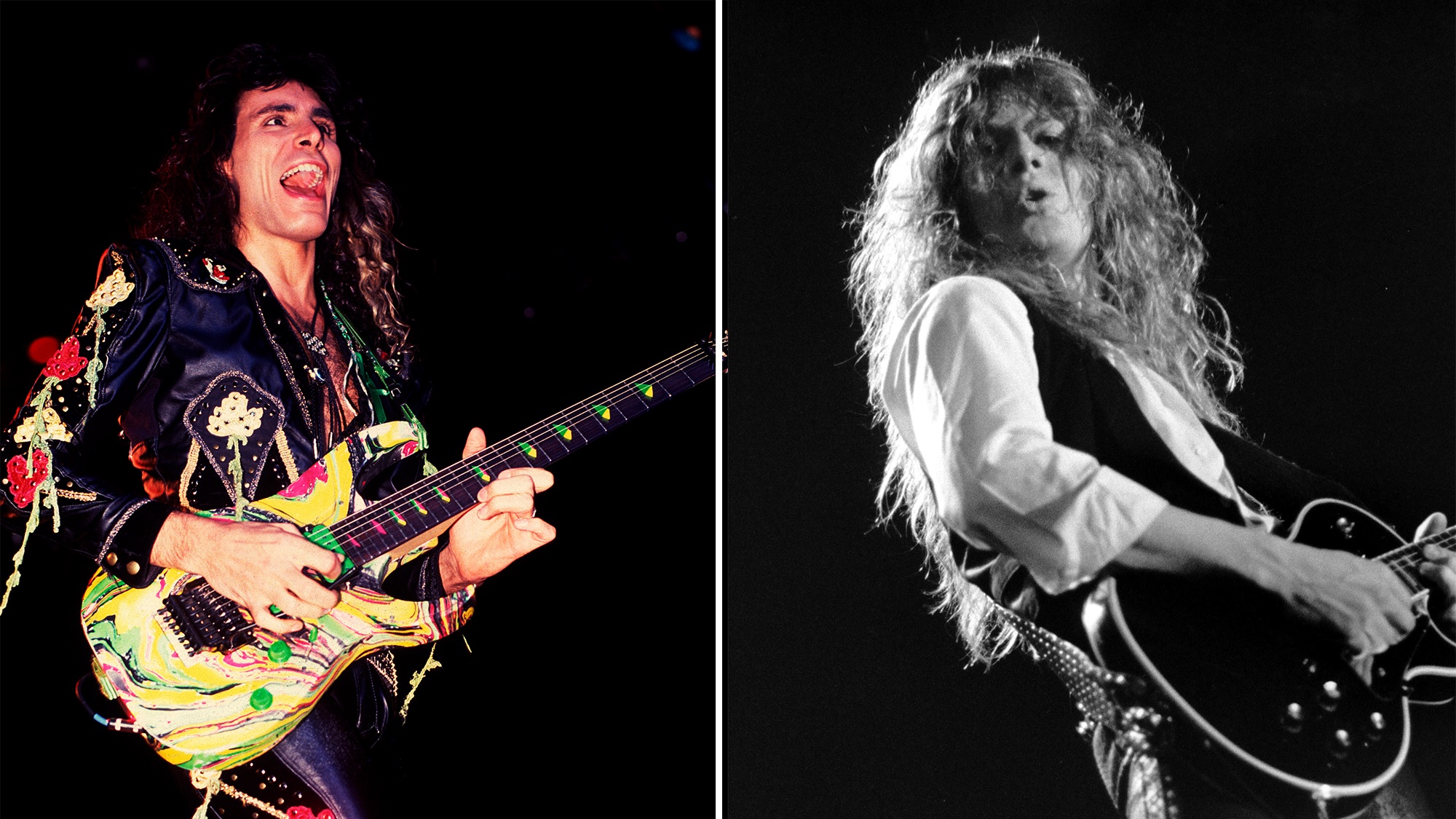“His thumbprint is an indelible part of the Whitesnake record he did. The fatness of that record and the rock integrity it had was all him”: Steve Vai followed John Sykes in Whitesnake – and he quickly decided what not to do when playing his parts
Of course, it wasn't a chops issue so much as it was the late guitarist's unique six-string footprint

Before he pretty much permanently set down his own path, electric guitar hero Steve Vai's last stop was with the hugely successful Whitesnake.
Vai was following in the footsteps of John Sykes, who passed away earlier this week (January 20) at the age of 65.
In tandem with frontman David Coverdale, Sykes had pushed the already-successful band into more commercial territory, co-writing almost every track on their self-titled 1987 album.
The result was nothing short of a smash, a true-blue rock blockbuster that went Platinum many times over, and made Whitesnake one of the biggest bands in the world.
Before the album even came out, however, Sykes – seemingly at loggerheads with Coverdale – was out of the band, and left out of promoting the album he had done so much to help create.
On the subsequent tour, Sykes' place was taken by both Adrian Vandenberg and Vivian Campbell, though within just a couple of years, they too would be out of the band – the former temporarily, due to injury, and the latter permanently, due to personal differences.
In, then, came Vai, who lent his signature flash to the band's next LP, 1989's Slip of the Tongue, which further transformed and evolved Whitesnake's sound.
Get The Pick Newsletter
All the latest guitar news, interviews, lessons, reviews, deals and more, direct to your inbox!
Though multiple guitarists had come and gone in the years since the recording of the band's 1987 self-titled effort, Sykes had been the band's last player in the studio, and Vai saw himself as Sykes' direct successor.
Vai had great respect for Sykes' contributions, but immediately established a rule of thumb for himself when it came to his own approach with the band.
“Whitesnake had gone through different permutations of guitar sounds throughout the years, and the previous one to me was John Sykes, and he absolutely had his own sound,” Vai told Guitar World in a 2020 interview.
“Sykes didn’t sound like any other previous Whitesnake guitarist, but his thumbprint is an indelible part of the Whitesnake record he did. The fatness of that record and the rock integrity it had was all Sykes. So I knew I wasn’t going to sound like Sykes and I wasn’t going to try to.
“You cheat yourself when you try to do that and play like someone else,” he continued. “And the audience is a lot smarter than you think; they’re very intuitive and perceptive and if you try to pull anything over on them – like biting someone else’s thing – you’ll get beat up for it.”
Despite his differences with the guitarist in the past, Coverdale was quick to pay tribute to Sykes in the wake of the latter's death, writing on Twitter, “Just heard the shocking news of John’s passing – my sincere condolences to his family, friends, and fans.”
Jackson is an Associate Editor at GuitarWorld.com. He’s been writing and editing stories about new gear, technique and guitar-driven music both old and new since 2014, and has also written extensively on the same topics for Guitar Player. Elsewhere, his album reviews and essays have appeared in Louder and Unrecorded. Though open to music of all kinds, his greatest love has always been indie, and everything that falls under its massive umbrella. To that end, you can find him on Twitter crowing about whatever great new guitar band you need to drop everything to hear right now.
You must confirm your public display name before commenting
Please logout and then login again, you will then be prompted to enter your display name.
“Such a rare piece”: Dave Navarro has chosen the guitar he’s using to record his first post-Jane’s Addiction material – and it’s a historic build
“The best guitar player I ever heard”: Nashville guitar extraordinaire Mac Gayden – who worked with Bob Dylan, Elvis, Linda Ronstadt and Simon & Garfunkel – dies at 83







![[from left] George Harrison with his Gretsch Country Gentleman, Norman Harris of Norman's Rare Guitars holds a gold-top Les Paul, John Fogerty with his legendary 1969 Rickenbacker](https://cdn.mos.cms.futurecdn.net/TuH3nuhn9etqjdn5sy4ntW.jpg)





